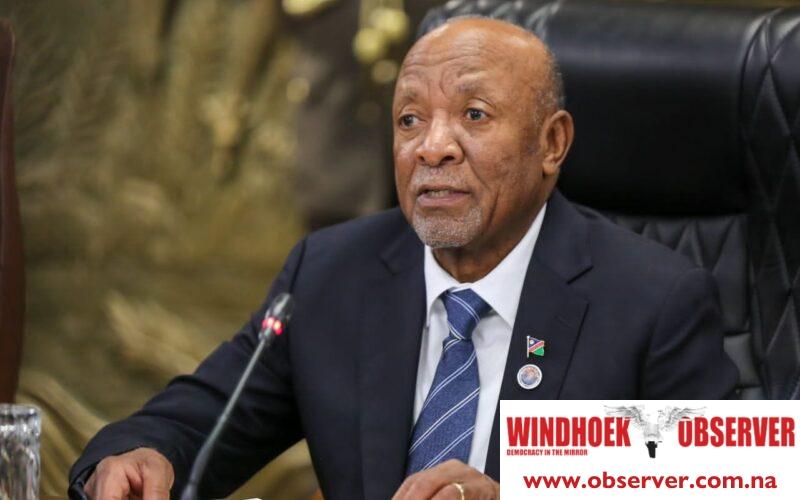Hertta-maria Amutenja
President Nangolo Mbumba has raised concerns about global inequality and the inefficiency of international institutions.
He said this during a meeting with the President of the 78th Session of the United Nations General Assembly, Dennis Francis, last week in Windhoek.
According to Mbumba, there is a systematic bias that favours powerful nations.
“There is definitely an indication of a conspiracy to have certain human beings, countries, and continents that should not be allowed to reach the level of others and that they cannot be equals,” Mbumba said.
Reflecting on his tenure as finance minister, Mbumba expressed scepticism about global financial institutions.
“As for the reform of the world’s financial institutions, as a former minister of finance, I have no faith in them. I have seen their meetings, addressed them, and facilitated them. I had that job for seven and a half years, and when you are there for the official opening and when smaller or poorer countries come to speak, the big countries are not there to listen; they are gone. But that is no reason to give up,” he said.
Mbumba pointed out that, while critics often blame the UN’s establishment in 1948, he raised a concern about whether humanity has evolved since then.
“We are challenging the fact the institution (UN) was created in 1948. But the real question is, has humanity changed at all? Are we any different from those who lived in those days? I don’t think so because we continue to make the same stupid mistakes, repeat the same mistakes, and continue to do the most heinous, cruel things, just like others.”
Francis asserted that it is impossible to apply a 1948 system effectively and credibly to a 2024 system that has undergone a significant revolution.
“So, we know that we need to adapt and change to become more efficient and impactful. Now is the time to intensify the fight for this institution’s founding values and principles, which have given it credibility for over 80 years.”
During his visit to Namibia, Francis praised the nation’s stability and democratic values amidst regional challenges.
“The situation on the ground in Africa with all these conflicts has been engaging my attention for some time. But I am happy to say that what we have observed in our travels to other places on the continent on this mission, none of that exists here in Namibia.”
Francis also highlighted the role of the International Criminal Court (ICC), a UN creation, in enforcing justice globally.
“The message from that is that impunity cannot be allowed to exist in the world. The International Criminal Court is a creation of the UN, making it impossible for leaders anywhere to commit crimes against humanity and walk away from it.”
Francis’ visit, from 18 to 21 June, was at the invitation of Peya Mushelenga, Namibia’s Minister of International Relations and Cooperation.
The visit served as a prelude to the Summit of the Future, which Namibia will co-host with Germany on 22 and 23 September.




